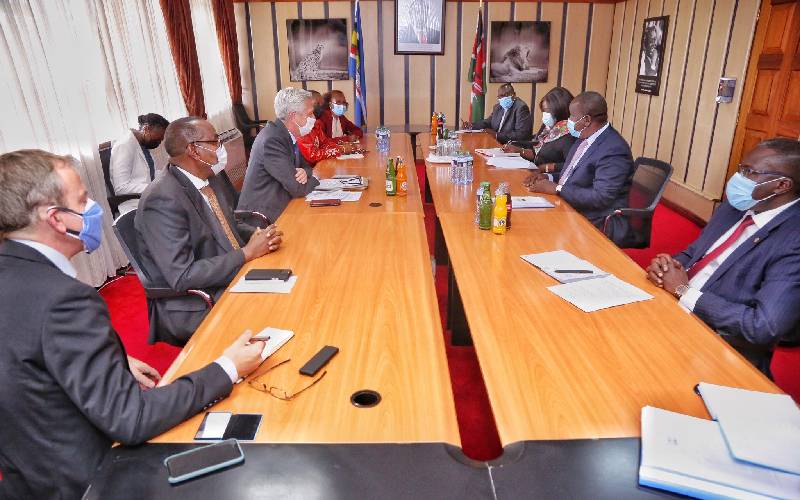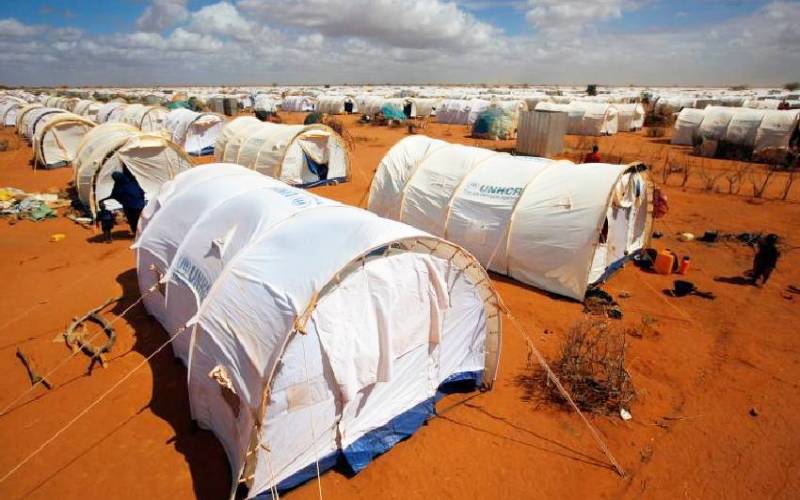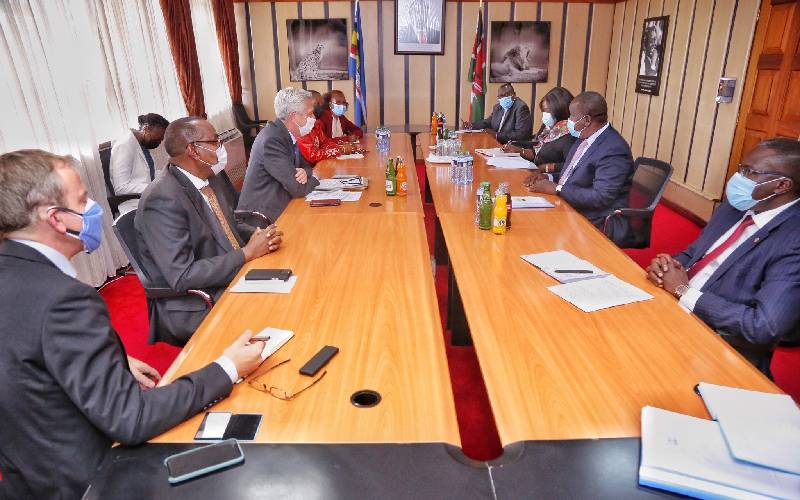[ad_1]

UNHCR officials led by Filippo Grandi when they met Interior CS Fred Matiang’I in Nairobi on April 29, 2021. [Photo, Couretsy]
Kenya will continue with its plan to close the Kakuma and Dadaab refugee camps by June 30 next year.
Interior CS Fred Matiang’I today met Commissioner of the United Nations High Commissioner for Refugees Filippo Grandi to fast track the process that will start on May 5 next year.
Kakuma camp houses more than 200,000 refugees and asylum-seekers.
Matiang’I said refugees from the East Africa Community residing in the camps will have an option of repatriation or free work permits to carve out a living anywhere in the country, thus “contributing to our nation’s social-economic growth”.
The government in March gave the UNHCR 14 days to have a road map on the definite closure of Dadaab and Kakuma refugee camps.
Matiang’i at the time issued the directive to the UNHCR representative in Kenya Fathiaa Abdalla, saying there is no room for further negotiations.
Dadaab Refugee camp, located in the semi-arid town of Garissa County, is one of the largest and complex camps in the world.
Take a quick survey and help us improve our website!

Tents at the UNHCR’s Ifo Extension camp outside Dadaab.
The UN has said the closure of Dadaab and Kakuma camps will adversely affect the protection of refugees and asylum seekers.
UNHCR warned that the move will have severe results especially in the middle of the Covid-19 pandemic.
The agency acknowledged the generosity of the Kenyan government for hosting the refugees for decades.
In 2006, Kenya made similar threats, with claims that terror attacks were planned in the camps. The threats culminated in the signing of a tripartite agreement between Kenya, the federal government of Somalia, and UNHCR.
Some of the refugees have expressed shock after the announcement to close Dadaab and Kakuma refugee camps.
“We are shocked by this because what we fled in Somalia is still there. We have no homes nor do we have anything to go back to in our country,” said Abdullahi Osman, the vice-chair of Ifo Refugee Camp.
He said refugees still need a lot of help and protection and asked the government to rethink the decision.
Monitor water pumps remotely via your phone
Tracking and monitoring motor vehicles is not new to Kenyans. Competition to install affordable tracking devices is fierce but essential for fleet managers who receive reports online and track vehicles from the comfort of their desk.
[ad_2]
Source link
















